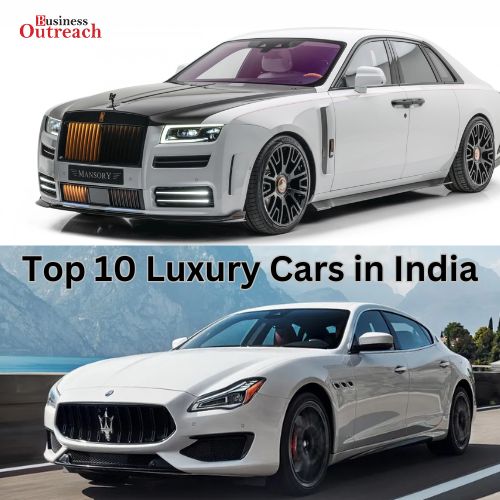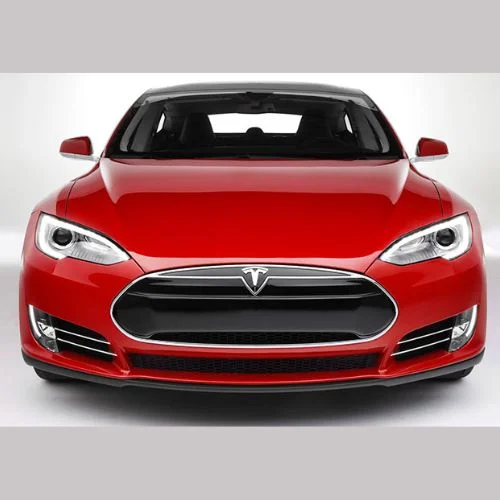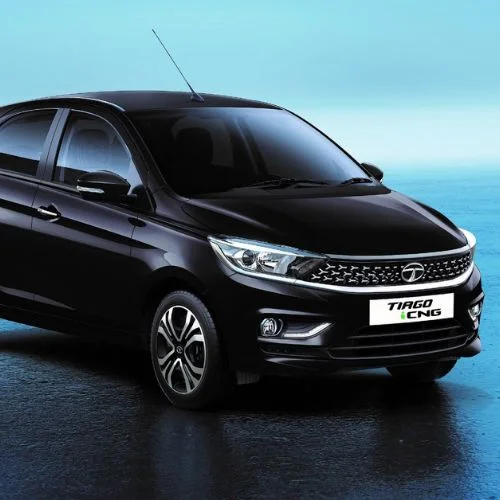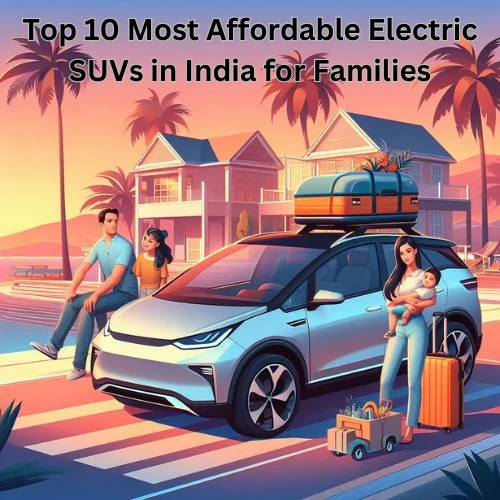Since electric cars have been around for a while, their popularity is growing. Before purchasing an EV, the buyer’s thoughts naturally go through the following charging station types questions:
- Which type of battery do I require?
- How long does it take to power an electric vehicle?
- Do I need a brand-new assembly or can I use an existing plug socket?
We will attempt to address these queries in this article. A normal EV driver is able to complete 80% of his home charging. Electric vehicle charging is a very simple procedure. To refuel, all you need to do is plug your car into the charging port. Here is a basic guide to the different kinds of EV charging stations in India and their costs.
Various Electric Car Charger Types
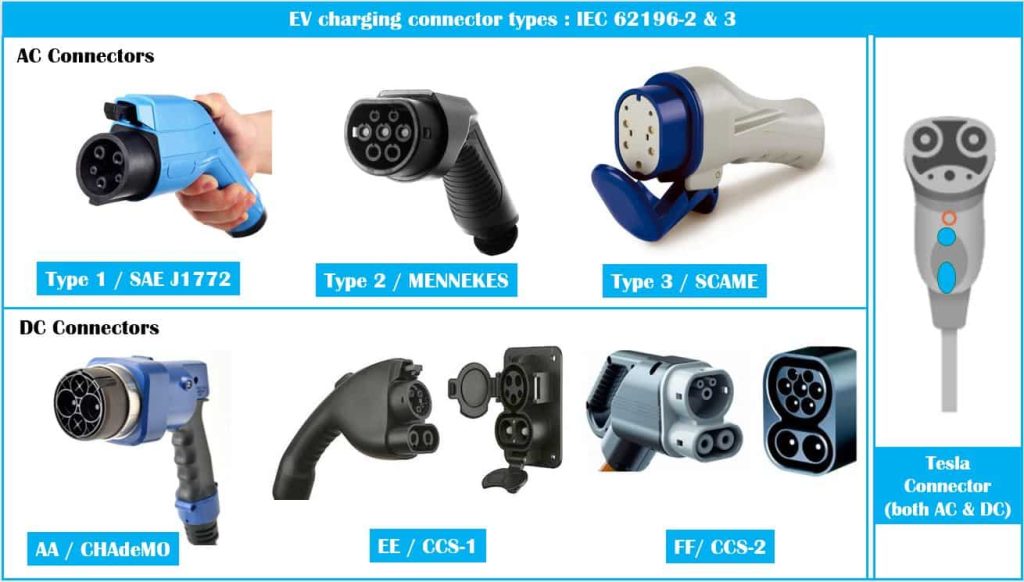
All-electric vehicle supply equipment (EVSE) or EV Charging Stations are not the same, even though charging an electric car is equivalent to plugging any electric device into the charging station. While some equipment may require specialized installations, other equipment can simply be plugged into a regular wall socket to be installed. Depending on the kind of charger being used, the charging duration also varies. Let’s learn a bit more about EV chargers before we get into EV charging sites. Let’s learn a bit more about EV chargers before we get into EV charging sites.
AC Chargers: AC chargers are slow chargers; it takes them almost 6 to 8 hours to fully power an EV. IEC-60309 is the most widely used electric car charger in India. It complies with Bharat EV standards and is additionally sponsored by the FAME-II program. AC chargers are slow chargers; it takes them almost 6 to 8 hours to fully power an EV.
The second charger in use is IEC-62196, also known as a type-II connector and used on devices all over the globe. EVs like the Ather 450 E-scooter is charged using this adapter. The third kind of charger has a straightforward three-pin connection and a 15 Amp plug. Electric vehicles at Stage 1 Chargers connect to a typical wall socket using a 120V AC plug. There is no installation or extra hardware needed for these chargers. Home use of Level 1 electric vehicle chargers is common.
The least expensive charging stations are Level 1 electric chargers, but they also take the longest to fully power your car’s battery. These types of chargers are frequently used by car owners to charge their cars overnight. The companies that produce Level 1 electric vehicle chargers are Alphaa EV, Charzer, and Kazam.
Electric vehicle level 2 charging station
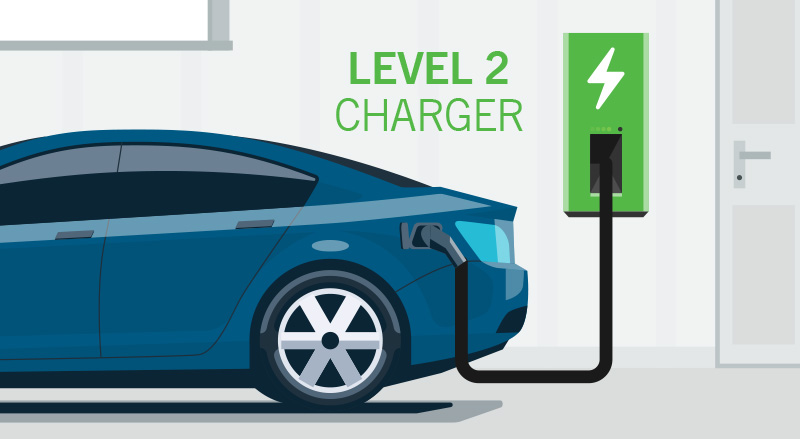
Electric vehicle at Stage 2 Both public and private charging stations use chargers to refuel the car. While the residential charger makes use of a 240V AC plug, the commercial charger utilizes a 208V AC plug. Installing Level 2 Electric Vehicle Chargers correctly requires the assistance of a licensed technician. Additionally, these chargers can be mounted as a component of a solar panel setup.
These chargers have an hourly recharge capacity of 10 to 60 miles of range. A car battery can be completely charged in under two hours using a Level 2 electric vehicle charger. They are ideal for both businesses that want to provide customers with rapid charging choices and homeowners who need quick charging stations.
Chargers for Class 3 Electric Vehicles
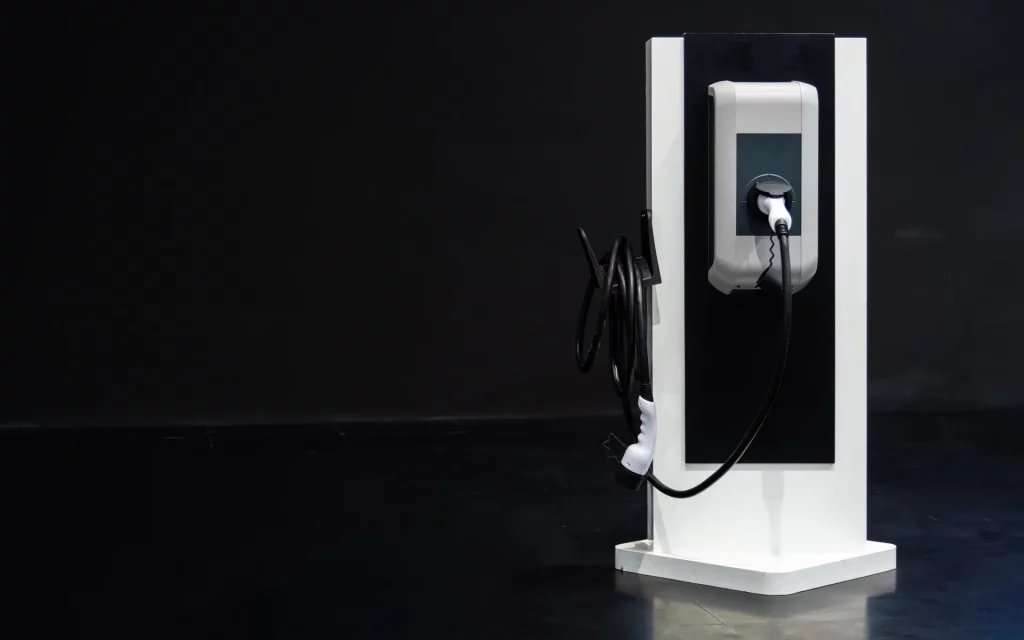
With just 30 to 40 minutes of charging, Level 3 electric vehicle chargers, also referred to as DC fast chargers and equipped with CCS2 or CHAdeMO connectors, can extend the range of your electric car by up to 100 miles.
However, DC fast chargers are typically only applied in business and industrial settings. Installation and upkeep of these DC charging stations demand powerful, highly specialized equipment. These Level 3 Chargers are not compatible with powering all-electric vehicles. Few all-electric cars can’t be charged with a DC Fast Charger, and many plug-in hybrid EVs lack this charging capability.









